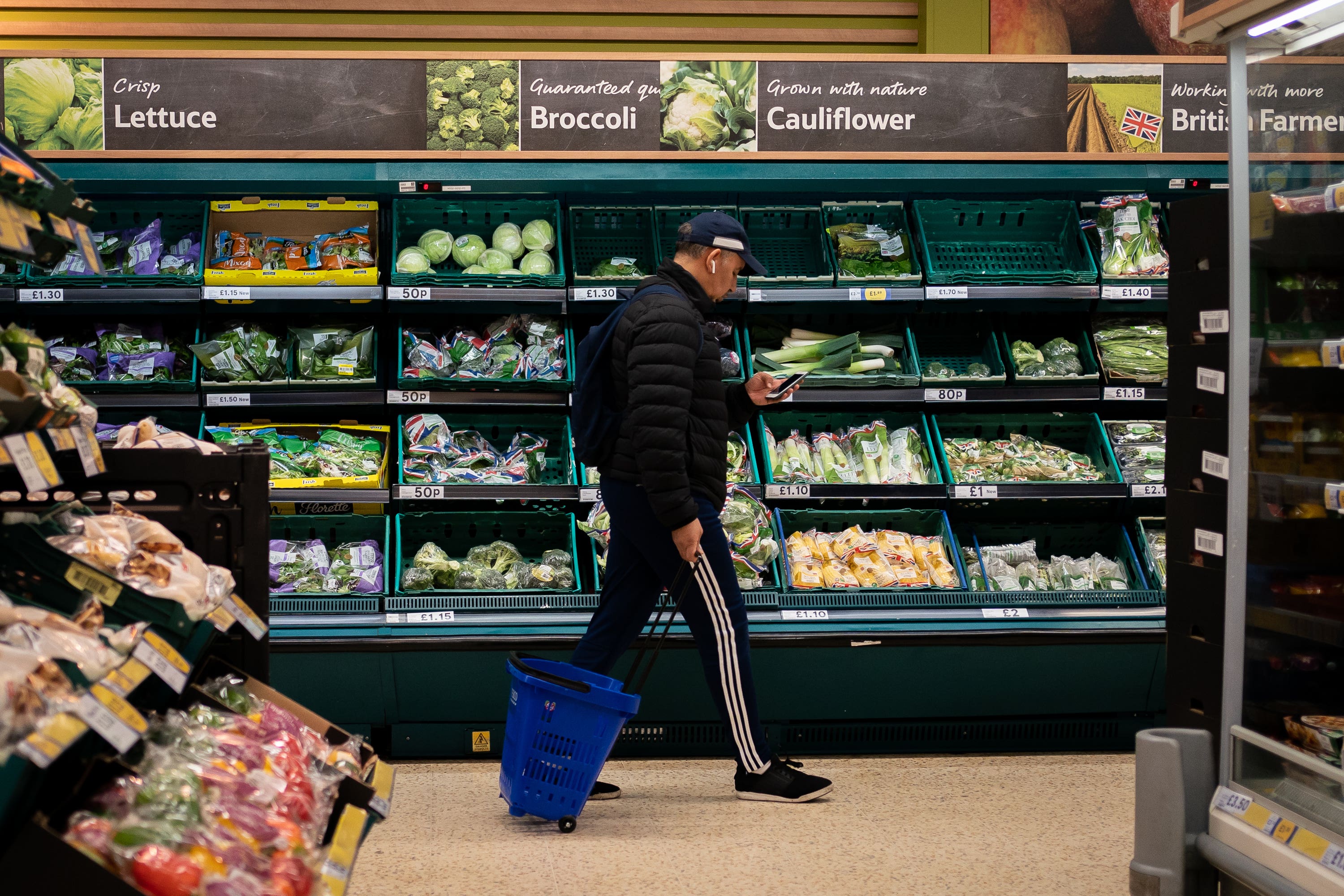Pressure grows on supermarkets as soaring food prices ‘harm mental health’
Many people say their physical health has deteriorated because of high food prices

Your support helps us to tell the story
From reproductive rights to climate change to Big Tech, The Independent is on the ground when the story is developing. Whether it's investigating the financials of Elon Musk's pro-Trump PAC or producing our latest documentary, 'The A Word', which shines a light on the American women fighting for reproductive rights, we know how important it is to parse out the facts from the messaging.
At such a critical moment in US history, we need reporters on the ground. Your donation allows us to keep sending journalists to speak to both sides of the story.
The Independent is trusted by Americans across the entire political spectrum. And unlike many other quality news outlets, we choose not to lock Americans out of our reporting and analysis with paywalls. We believe quality journalism should be available to everyone, paid for by those who can afford it.
Your support makes all the difference.Soaring food prices are harming the mental health of shoppers and families, according to a study by consumer group, Which?.
The rising cost of everyday groceries has worsened the mental health of a quarter (25 per cent) of people, the survey suggests.
Some 23 per cent say prices have hindered their ability to eat a healthy diet, while 22 per cent said they had lost sleep over food costs, and one in five said their physical health had deteriorated.
It comes as new figures suggest food inflation may finally have peaked – but price rises remain at historically high levels.
Food inflation decelerated for a second consecutive month to 14.6 per cent in June, down from 15.4 per cent in May, according to the BRC-NielsenIQ Shop Price Index. Overall, shop price inflation slowed to 8.4 per cent, down from 9 per cent in May.
MPs are preparing to question senior figures from Sainsbury’s, Morrisons, Tesco and Asda on Tuesday about when shoppers can expect to see prices fall. The business committee is also expected to scrutinise the gross profits of the big supermarket chains over claims of profiteering
Three in 10 women (30 per cent) in the Which? survey said their mental health had worsened as a result of soaring food prices.
A third of people aged 35 to 54 – those most likely to be parents of young families – said food costs had had a negative impact on their mental health. They were more likely to be negatively affected than those aged 18 to 35 (27 per cent) and over 55 (18 per cent).
The consumer organisation’s head of food policy, Sue Davies, said: “Which? research shows how the sustained stress and worry caused by rising food prices is now having a detrimental impact on people’s mental and physical health.
“Women and young parents are among the worst affected and some people struggling to feed their children are asking themselves how much more of this they can take.
“Now is the time to act. The government must urgently get supermarkets to commit to stocking essential budget ranges in all their stores, particularly in areas where people are most in need, as well as make pricing much clearer so shoppers can compare prices and find the best value products.”
The BRC/NielsenIQ survey found that fresh food inflation saw a significant slowing from May’s 17.2 per cent to 15.7 per cent as retailers dropped the prices of staples including milk, cheese and eggs.
Clothing and electrical goods also saw falling prices amid inflation on items other than food slowing to 5.4 per cent from 5.8 per cent last month, helping customers to pick up a bargain ahead of the summer holidays.
BRC chief executive Helen Dickinson said: “Households up and down the country will welcome the easing of shop price inflation in June. If the current situation continues, food inflation should drop to single digits later this year.
“However, it is imperative that the government does not hamper this progress by introducing costly new policies. Reforms to the packaging levy and a new deposit return scheme could create an additional £4bn burden on retailers and their customers.”
Mike Watkins, head of retail and business insight at NielsenIQ, said: “If global supply chain costs continue to fall, we may now be past the peak of price increases. However, with most households needing to save money, purchasing behaviour for the rest of this year is still likely to shift towards essential needs with discretionary consumption being de-prioritised or delayed.”
Opinium surveyed 2,000 UK adults between May 19-23 for Which?



Join our commenting forum
Join thought-provoking conversations, follow other Independent readers and see their replies
Comments